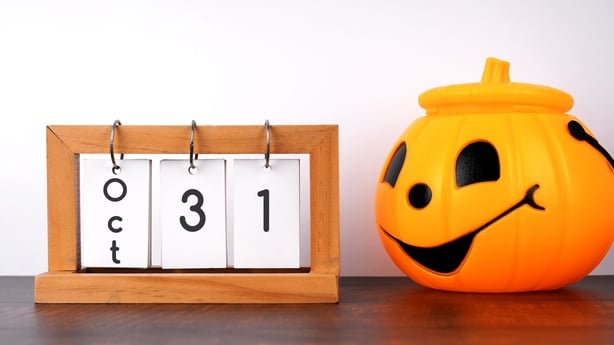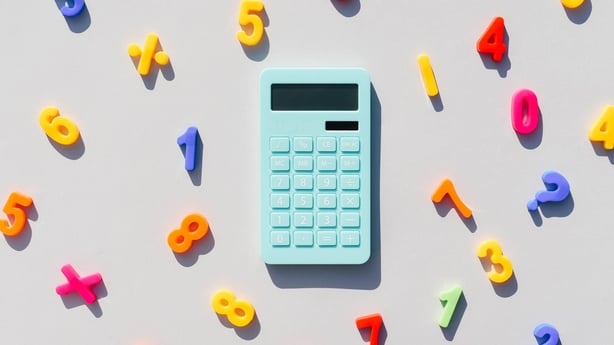Halloween isn't the only scary thing due at the end of October, it’s tax returns season.
It’s time for business owners and the self employed to get their tax affairs in order.
PAYE workers who earn income outside of their normal job may also have to file a tax return.
While this process may fill you with a sense of dread, Marian Ryan of Taxback.com says it doesn’t have to.
"The more tax savvy you become and the more financially literate we become as a nation, the fear element of the '’tax man’’ should reduce," she said.
What is a self-assessed tax return?
A self-assessed tax return is exactly what it sounds like.
It means you are responsible for assessing how much tax you need to pay on your earnings, and you're responsible for paying that tax to the collector general.
Who has to file and pay?
The self-employed, contractors, subcontractors and landlords are all required to file a self-assessed tax return.
You'll also have to file a return if you've received any income in addition to PAYE income - such as rental income, capital gains, or profits from investments and cryptocurrency.
If you're a PAYE worker with non-PAYE income, you'll be deemed a "chargeable" person if your non-PAYE income is over €5,000 in the year and if it's not coded into your tax credits.
But remember, if your income is below €5,000, you will still need to declare it.
Ms Ryan said there are some other less common reasons why you may fall into the self-assessment bracket.
"For example, if you are a proprietary director of a company with shareholding in excess of 15%," she explained.
Simply put, you will need to declare any income that PAYE tax isn't being deducted from by your employer to the Revenue Commissioners in the form of self-assessment.
When is the deadline?

The filing deadline each year is 31 October the following year.
That means tax returns for last year are due to be filed by Halloween.
When you pay and file through the Revenue Online Service (ROS), the deadline is usually extended by around two weeks.
This year the extended deadline for those who pay and file online is 14 November.
"It is really important that you pay and file on time to avoid surcharges, interest and penalties, and reduce your risk of a tax audit," said Ms Ryan of Taxback.com.
How do you file your return?
You can file and pay online using ROS.
On its website, Revenue outlines the steps you need to take, and has helpful video guides.
You must file a 'Form 11' tax return if your taxable income exceeds €5,000 or gross non-PAYE income is more than €30,000 per year.
If you use ROS to make your tax return online, it will calculate your self-assessment based on the information you provide.
You can choose to accept this calculation or input your own self-assessment.
If your taxable income is less than €5,000 per year and gross non-PAYE income is less than €30,000, then you must file a 'Form 12' return.
Do I need to hire a professional?
If you set aside the time, you can look after your own tax return.
However, some may decide to get a tax agent or accountant to manage their affairs.
Ms Ryan of Taxback.com pointed out that accountancy fees are tax deductible.
"This means you can offset them as an expense and you can avail of expertise to reduce your potential tax liability," she said.
"Sometimes perceived savings by doing something yourself could end up costing you more in the long run in the form of either a higher tax bill or late fees or surcharges if a return is filed incorrectly or late," she added.
What sort of tax credits can be claimed to reduce a tax bill?

As a self-employed person you are still entitled to claim a lot of the tax credits and deductions that a PAYE employee is entitled to.
For example, you're entitled to the personal tax credit, single parent tax credit and home carers tax credit.
Ms Ryan said the vast majority of tax credits are available to everyone regardless of status.
"The only one that a self-employed person may not be entitled to would be the employee tax credit but that is compensated for by the earned income tax credit," she said.
"As a self-employed or self-assessed person you are also eligible to claim the relevant deductions relating to your personal pension contributions and legally enforceable maintenance payments," she added.
What about expenses?
When it comes to expenses relating to your self assessed income, the wording of the legislation is that any expenses made "wholly and exclusively" for business purposes can be offset against your taxable income.
That means in order for you to be able to deduct an expense from your income it needs to have been incurred as a result of the income and not for personal use.
"For example, you may need a mobile phone to carry out your business but there may be an element of personal use," said Ms Ryan of Taxback.com.
"You would need to apportion your mobile phone bill accordingly and only claim the percentage of the bill that would equate to business use," she explained.
Other common expenses for self-employer people would include:
- Rent of an office space
- Office equipment - computers, printers, copiers and fax machines etc
- Utility bills - heating, lighting, telephone and internet etc
- Wear and tear - annual allowance of 12.5% of the cost, over 5 years. Can be claimed on capital expenditure incurred on plant and machinery
- Business vehicle running expenses - motor tax, insurance, service, NCT and repairs etc
Common rental expenses for landlords include:
- Mortgage Interest
- RTB registration
- Repairs and maintenance/wear and tear
- Advertising expenses and estate agent fees
- Management/agent fees
- Local service charges (rubbish collection, recycling etc)
- Legal/accounting fees
- Insurance premiums
- Capitol allowances (wear and tear on white goods, fixtures, fittings)
- Certain pre-letting expenses
Expenses that can't be claimed include:
- Stamp Duty
- Food
- Commuting
- Entertainment of clients
Are there other ways to lower your tax bill?

Making additional pension contributions is a good way to reduce your tax bill - if you have the funds to do so.
Any additional private pension contributions made between the 1 January and the 31 October can be accounted for in your 2023 tax return and can reduce your tax bill substantially.
Ms Ryan explained how relief is given at your marginal rate of tax - the highest rate of tax you are paying.
"So if you are a 40% taxpayer and you make additional pension contributions of €10,000 this could potentially reduce your tax bill by €4,000," she said.
"One thing to be mindful when doing this is that there are limits to the amount you can put into your pension in a year based on your age," she added.
Below is the maximum percentage of your income you can claim tax relief for pension contributions based on your age.
- Under 30 - 15%
- 30-39 - 20%
- 40-49 - 25%
- 50-54 - 30%
- 55-59 - 35%
- 60 or over - 40%
What are the most common mistakes people make?
According to Marian Ryan of Taxback.com, the biggest mistake people make is failing to file the return on time, or at all - because they don't realise they are self-assessed.
She said there is a common misconception that if your income is small - below €5,000, you don’t need to declare it.
"This is incorrect, every cent we earn needs to be declared to Revenue - it is just a different reporting mechanism and it may be possible to declare on a Form 12 tax return rather than a Form 11 tax return," she explained.
Ms Ryan also said some landlords assume that if their rent isn’t as much as their mortgage costs that they don’t have any income to declare.
"It is only mortgage interest that is a tax deductible expense so they do have rental profit to declare," she said.
Despite sharing a filing deadline with Halloween, Ms Ryan said being a self-assessed or a chargeable person should not be seen as a scary or intimidating thing.
"The Revenue Commission's job is to ensure that everyone is taxed correctly, not to get as much tax from us as possible," she said.
"However it is up to us to ensure that we include everything on our return to reduce our tax liability," she added.







